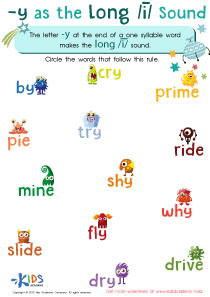Spelling practice Normal Vowel Team Worksheets for Ages 6-9
5 filtered results
-
From - To
Welcome to our Spelling Practice Normal Vowel Team Worksheets designed for children aged 6-9! These engaging worksheets focus on enhancing spelling skills through enjoyable activities centered around vowel teams. With a variety of exercises, students will learn to recognize and use common vowel combinations, strengthening their reading and writing abilities. Each worksheet is crafted to keep learners motivated while providing clear instructions that promote independent practice. Perfect for classrooms or home learning, these worksheets support early literacy development and help build a solid foundation for future reading success. Explore our diverse selection and watch your child flourish in their spelling skills today!
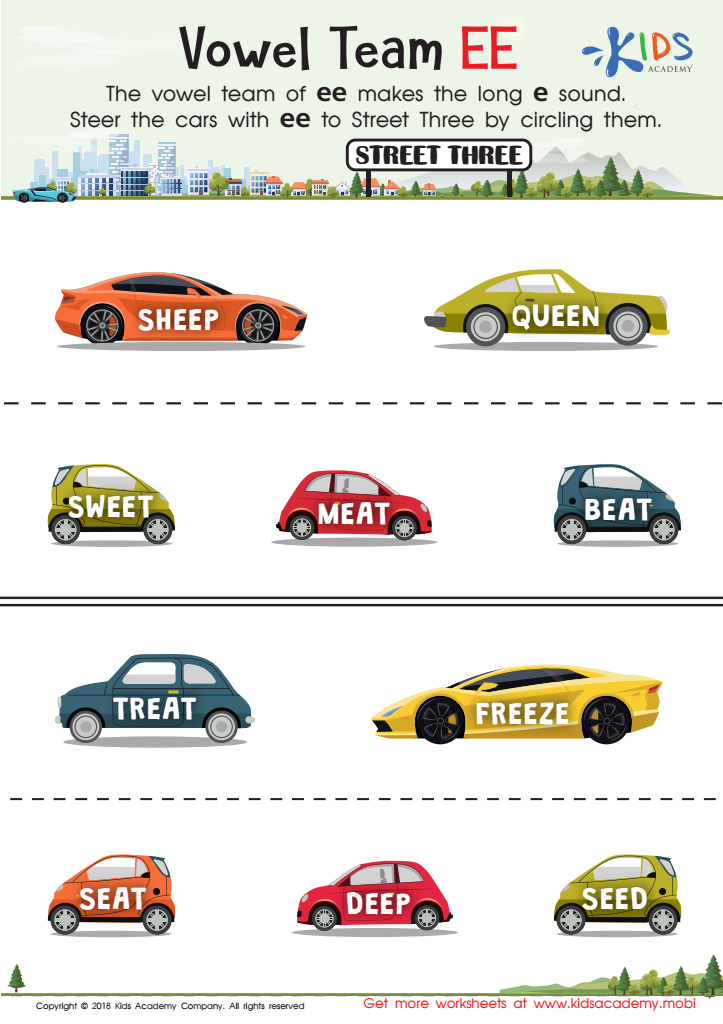

Vowel team ee Worksheet
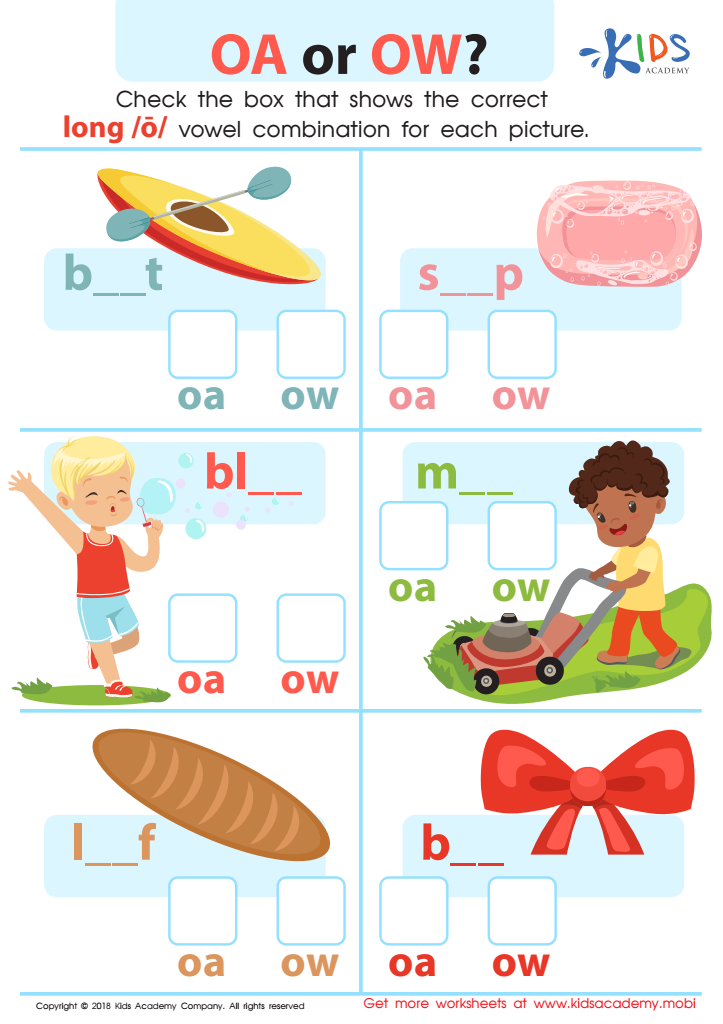

Reading: OA or OW Worksheet
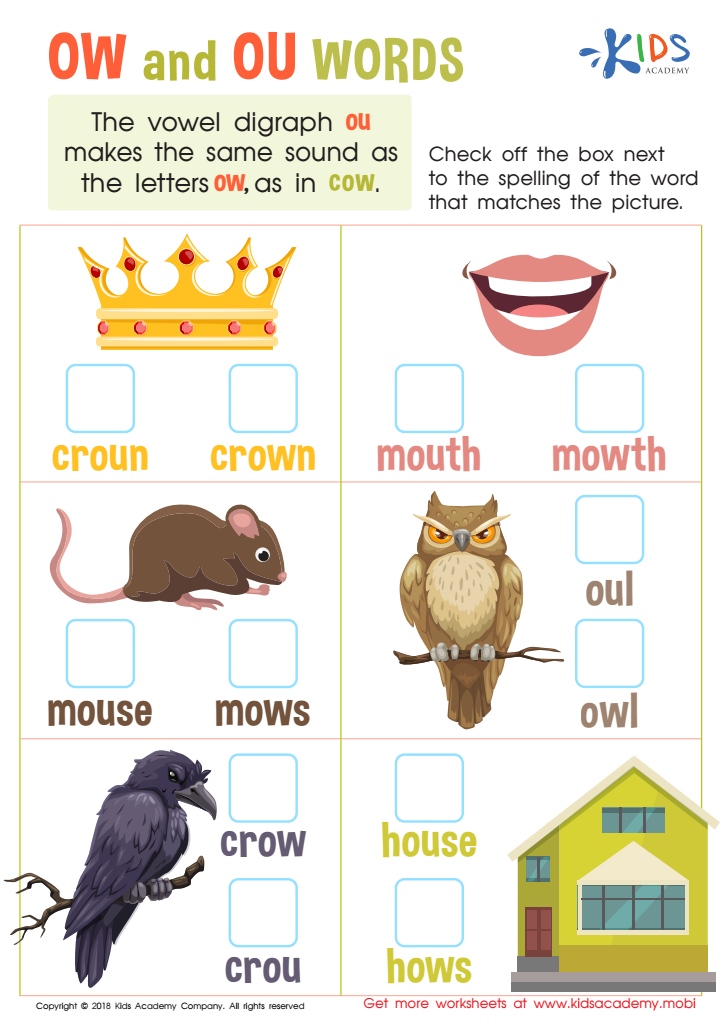

Reading: OW and OU Words Worksheet
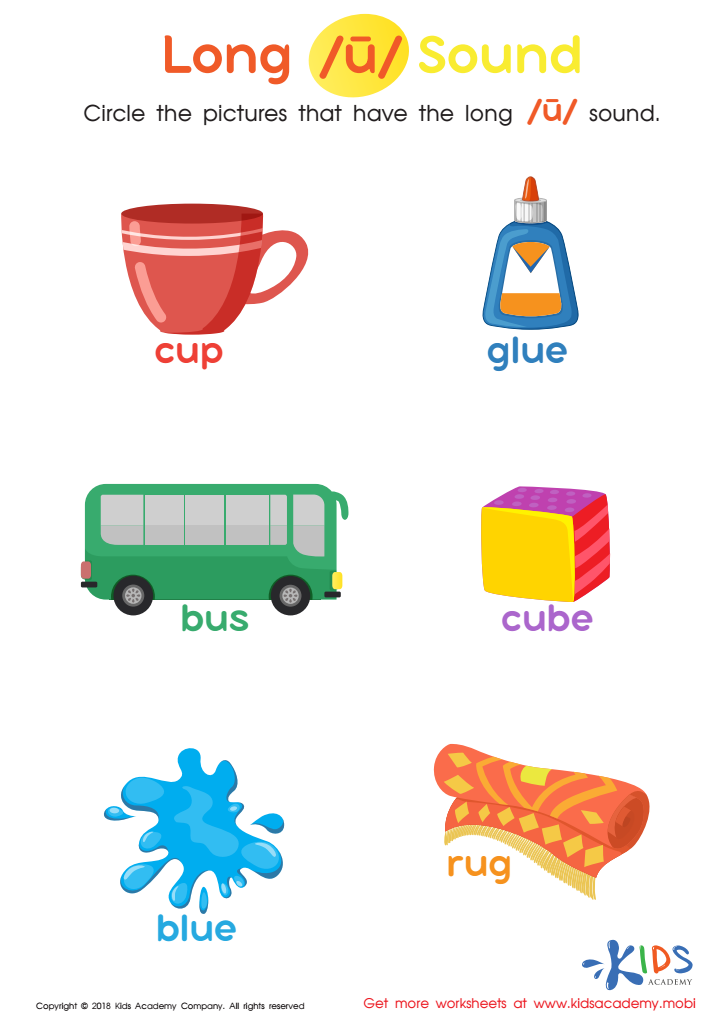

Long «u» Sound Worksheet
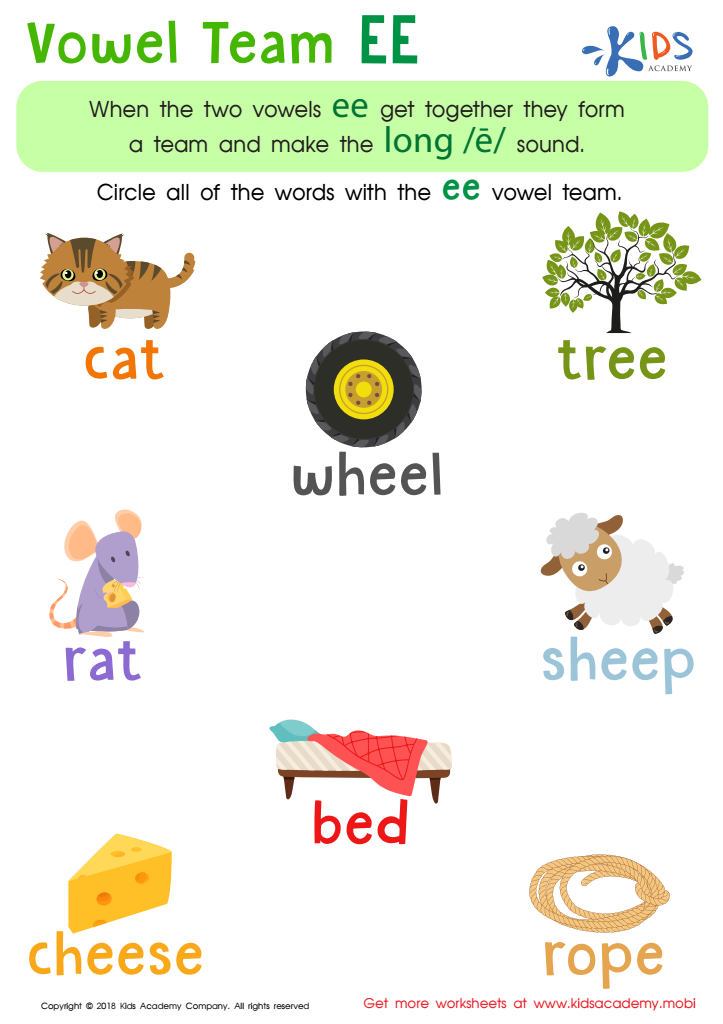

Reading: Vowel Team EE Worksheet
Spelling practice focusing on Normal Vowel Teams is crucial for children aged 6-9 as it strengthens their foundational literacy skills. At this age, children are making the transition from learning to read to reading to learn. Mastery of vowel teams like 'ai,' 'ee,' and 'oa' can significantly enhance their reading fluency and comprehension.
Teachers and parents should prioritize spelling practice because it helps children recognize patterns in words, leading to greater confidence in their reading and writing abilities. This training aids in reducing spelling errors and improves overall communication skills, which are essential for academic success.
Additionally, strong spelling skills can foster a love for reading, as children encounter less frustration while tackling new texts. When children can effortlessly identify words, they are more likely to engage with literature and enhance their vocabulary.
Moreover, consistent practice in spelling normal vowel teams can facilitate better pronunciation and understanding of complex words. This, in turn, prepares children for more advanced literacy challenges as they progress through school. Investing time in spelling now lays the groundwork for their future educational achievements and boosts their self-esteem as learners. Thus, emphasizing this aspect of literacy is essential for holistic development.

 Assign to My Students
Assign to My Students






